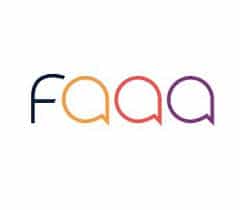First issued as a draft in September 2019, the finalised Law Companion Ruling 2021/2 clarified the ATO’s interpretation of amendments to non-arm’s length income (NALI) rules relating to non-arm’s length expenditure (NALE).
However, the LCR 2021/2 ruling generated much controversy as there were fears it would apply to a much broader range of circumstances and have much greater impact than what the super industry had understood the original government announcement was targeted at.
At a recent presentation at The Tax Institute’s National Super Conference, Senator Jane Hume was asked about the need to fix rules which potentially expose the entirety of a super fund’s income to a punitive tax rate due to a nominal or insignificant discount on a dealing.
“We have very much heard your concerns,” Senator Hume told delegates.
“We know the concerns about the Commissioner’s ruling, and I can assure you … [that] we are looking into your question.”
The Tax Institute said it was pleased to hear the government’s commitment to address the well-documented issues in the current non-arm’s length expenditure (NALE) provisions as it has a huge potential impact on super fund members.
Tax Institute’s director, tax technical and policy, Andrew Mills, said the new ruling had strayed from the NALE provisions, which were introduced in 2019 to address integrity concerns that super funds, especially SMSFs, were benefiting from low or no interest loan arrangements from related parties.
“Instead of requiring the fund to pay for these services at market rates, the rules attempted to address this concern by effectively tainting all income related to the discounted services, requiring the fund to pay tax at the top marginal rate on the tainted income,” Mr Mills said.
“The drafting of the legislation has gone beyond simply rectifying the original integrity concern.
“The views expressed by the ATO in their Law Companion Ruling 2021/2 highlight just how unfair the interpretation of the rules can be.”
For example, a qualified plumber who renovates a bathroom for an investment property owned by their SMSF for no cost could result in all future rental income and capital gains from the property being subject to the punitive 45 per cent tax rate, according to Mr Mills.
“In more extreme circumstances, an auditor who performs free services for their SMSF could see all of the fund’s future income tainted and charged a punitive tax,” he explained.
“Even the largest funds could see all their income subject to the highest marginal tax rate because of a low cost or discounted commercial arrangement designed to benefit millions of members.
“These outcomes are grossly unfair and in dire need of rectification. If we don’t get this right, it could have a hugely detrimental effect on the retirement plans of thousands of Australians, costing billions of dollars and impacting every super fund member’s savings.
“Government’s commitment to addressing the NALE rules is welcome news for super funds, and the Tax Institute looks forward to working with the government to ensure that the NALE rules are able to operate as intended.”



It wouldn’t be broken if they chose to interpret it in a way that made sense. It’s the ATO’s interpretation of the law that is broken and has been broken for a long time.
The definition of “reform” is fixing up the mess you made first time round.
Why should an accountant, financial planner, plumber, real estate agent charge themselves for fees – aren’t we trying to increase our funds for retirement – not erode them by some stupid fee. We are on the same side here – just cut the bureaucratic, red-tape bull!
And in any case a trustee is meant to act gratis by law!
Govt regulators in their Canberra bubble so out of touch with real world reality yet again. This time the ATO but it’s usually ASIC.
How can these Canberra Bubble bureaucratic clowns be so lacking in accepting real world advice and application and be pure technocrats ???
It’s mind numbing Canberra
It’s mind numbing Frydenberg, the utter insanity under Frydenberg’s last 8 years has never before been seen from LNP.
Out with Frydenberg NOW. !!!!!